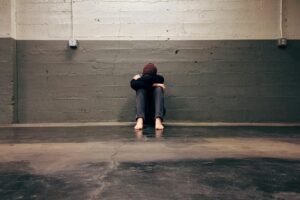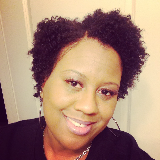Hearing loss and ear damage can happen at any age, so it’s important to keep watch of your ear health, especially if you’re concerned that your hearing might be starting to go or if you regularly engage in activities that might put your hearing at risk.
There are three different types of hearing loss — conductive, sensorineural and mixed — some of which are easier to fix than others. While conductive hearing loss is usually caused by something blocking the ear canal and obstructing hearing, sensorineural is usually caused by nerve damage and is often irreversible.
Hearing damage can disrupt your everyday life in big ways, and it can often be hard to fix once it’s already happened. So rather than trying to eventually reverse damage, you can take steps in your daily life to prevent hearing loss and protect the health of your ears right now.
1. Keep the Volume Under Control
Five out of every 10 young people listen to music too loudly, which has the potential to cause hearing damage. It’s important, especially when using earbuds or headphones, to keep the volume of any music or audio you’re listening to at a reasonable level so as not to cause sensorineural damage by harming the nerves in the ears. Your ears don’t simply get used to loud noise — they just get damaged further. Keeping the volume comfortably low is ideal.
2. Use Earplugs When Exposed to Loud Noise
An easy and simple way to protect the health of your ears is to wear earplugs when you’re around loud noises such as concerts, shows or large gatherings where noise is present. Using musicians’ earplugs or noise-canceling headphones can be a great way to practice this. Protecting your ears doesn’t mean you have to give up your favorite activities, it just means pursuing them with a little caution.
3. Take Recovery Time After Loud Noise Exposure
You can practice giving your ears recovery time in a few different ways. After exposure to loud noise, one of the best things you can do to protect your ear health is to take the next few hours — or even a full day — to limit noise exposure and have some quiet time. Have you ever been to a loud concert and felt the urge to turn off the music on the drive home? That’s because your body knows!
Beyond taking recovery time after, you can use this technique when exposed to loud noise as well. If you’re able, stepping away from the noise for a few minutes at a time can give your ears a break and help protect them from the constant stress. Taking noise breaks and recovery time can also help reduce headaches and migraines that often come as a result of loud noises.
4. Don’t Use Cotton Swabs to Clean Your Ears
Cotton swabs have always been known as the best tool to keep your ears clean, but experts have more recently been advising not to use them to clean the wax out of your ears. Even though there’s a common misconception that earwax is unhealthy and obstructs hearing, that’s actually not the case. In fact, having wax in your ears is perfectly normal, and can serve as a protective layer against dirt or debris that may try to make its way into your ears — which can actually pose a much higher threat than the wax itself.
Inserting cotton swabs into your ear can push earwax deeper into the ear canal causing blockage, which could put you at a higher risk for hearing loss than you would be if you just left your earwax alone. If you feel that you might have excessive earwax, you can clean it with a warm wash cloth or towel. If you still feel like you have an excess even after a careful earwax cleaning, visit a doctor who can give you a more comprehensive exam.
5. Get Your Hearing Tested if You Think There Might Be a Problem
Just like with anything else on your body, if you think there might be a problem, you should visit a doctor and get their opinion on the matter. Getting your hearing checked can never hurt. If you do have hearing damage, getting it checked out can help you address it as soon as possible. If you don’t have damage, getting a professional opinion can offer you peace of mind and help you know for sure. If you have any doubts, getting an opinion from a medical professional is much better than constantly wondering or trying to solve the problem yourself.
Hearing is a big part of life, and it’s important to protect it as much as you can. It’s never too early or too late to protect the health of your ears from damage, and learning about the risks is the first step.
If you think you might need to get your hearing checked, take initiative sooner rather than later. It’s important to be on top of your health, and your hearing is one piece of that puzzle.








